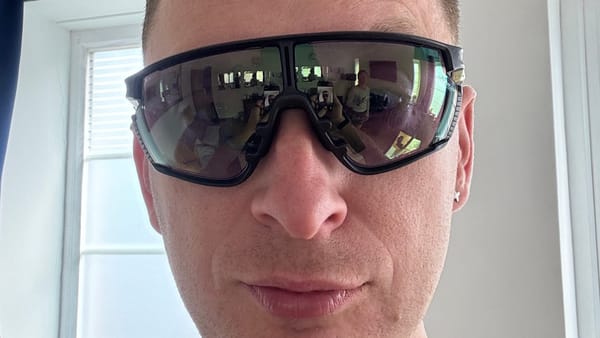Theoretical: Garmin is the better training tool
Since the Fēnix 3, Garmin's watches have been the most fully-featured tracking devices available. This isn't to say the most accurate, but, the ability to collect data from almost any sensor, and write it to a file, was unsurpassed.
Logically, with all this information, and their potential to understand human physiology, this would make them the best training tool, but they have a rub. Two, really.
- They are not the most accurate data gathering tool.
- They make decisions based on flawed data, with limited ability to correct it.
I've been oscillating between an Apple Watch Ultra 2, and an Epix 2 Pro, or Pro 2, I'm not sure what its name is. When tracking exercise with the AWU2, I ingest data using the following:
- Cycling: Wahoo Roam 2, or the native watchOS app
- Running: Stryd
- Swimming: Form
- Climbing: Redpoint
- Recovery: Ōura
- Overview: intervals.icu + HealthFit
Each one of these can be seen as masters of their field. They each have a very tight focus on doing one thing, and only that. Wahoo, for example, just ingests data, and displays it during a ride. It doesn't try and guess my FTP, or suggest a recovery time. The same with Form and their goggles.
When tracking with the Epix, I use the following, with issues:
- Cycling: Epix, plus Wahoo if it's a ride I need navigation on
- Why not Garmin's bike computers?
- I don't like looking at them
- I find them harder to use than the Wahoo and the iOS app
- When using the Daily Suggested Workout, the Epix and bike computer suggest different workouts, in theory based on the same data
- Why not Garmin's bike computers?
- Running: Garmin, plus Stryd
- The Epix, per Stryd, is unable to collect the data generated by the Stryd and an external HR monitor, and play music: it drops data, resulting in random pauses as the watch thinks it has stopped moving (FW 15.x, 2024-Q1)
- Swimming: probably Form, possibly the Epix
- The Epix has a nasty habit of incorrectly detecting swim length, in the following two scenarios:
- At the end of an interval, it'll show 100m, and then a few seconds later, deduct one length: the overall swim length can be corrected afterwards in GC, but it's not great for accurate pace tracking
- It simply doesn't detect a length
- If a swim isn't tracked on the Epix, then it's not factored into the greater training picture, which leads to double-tracking
- The Epix has a nasty habit of incorrectly detecting swim length, in the following two scenarios:
- Climbing: the Epix, but its range of supported grades is very narrow, good otherwise, except on a windy day when the rapid changes in air pressure cause it to auto-start climbs
- Recovery: this part I really like, with the morning report, and HRV data that tracks with Ōura and Whoop
- Overview: in theory, GC, but really, intervals.icu + HealthFit
Practical: Garmin is the better recovery tool.
What I experience is that Garmin has not been able to resist the urge to try and do everything, which has resulted in it compromising even its core skills. While they've been averaging their achievements across an increasingly wide portfolio of features, independents have crept in, and through single-function focus, eclipsed Garmin in areas that have traditionally been theirs. This leaves their USP as a tool that can track 85% of things, and deliver reliable recovery/health telemetry.
Why still use a Garmin?
So, with the litany of failings above, why would I use a Garmin?
- Variety: sometimes I'm bored of the very controlled watchOS
- EVAD-1: ActiveLook have made an excellent Apple Watch app, but I prefer to use the Stryd app for running with my AWU, and with a Garmin I can use my EVAD-1 HUD for running and cycling with full customisation
- Daily Suggested Workout and event-specific training plans: give Garmin a route and a date (for cycling and running, anyway) and it'll do its best to get you to the end of the route, on time, and uninjured (at least from overtraining). I can't say how much I like their auto-workout generation
- Esoteric data capture: sometimes I want to capture data that I can't with my AWU, such as muscle oxygenation during climbing, body temperature in the same file as a run or a ride (CORE), or chest strap heart rate during an OWS
- Battery life: although, the AWU has made superb advancements in that field
- Recovery/general health telemetry: I don't think an awful lot of Whoop, and much as I trust the data from Ōura wearing a ring annoys me after a few weeks
- That torch is just the business, come on! A real torch, not turning the screen white? Sure, Apple's implementation is elegant, but...



